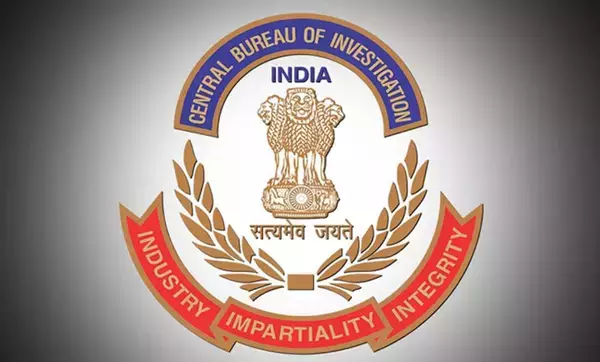 |
|
 |
|
 |
|
 |
|
 |
|
 |
|
 |
|
 |
|
 |
|
 |
|
 |
|
 |
|
 |
|
 |
|
 |
|
Cryptocurrency News Articles
CBI and Crypto Fraud Cases: Decoding the Digital Underworld
Oct 04, 2025 at 05:06 pm

The world of cryptocurrency, while promising innovation, has also become a hotbed for fraud. As digital assets gain traction, so do the schemes exploiting their decentralized nature. The CBI (Central Bureau of Investigation) is increasingly finding itself at the forefront of unraveling these complex cases. Let’s break down what's happening.
Record-Breaking Seizures and Ethical Dilemmas
Take, for instance, the United Kingdom's dilemma with a record-breaking Bitcoin seizure. Authorities confiscated 61,000 Bitcoin in 2018, now worth a staggering $7.24 billion, linked to an international fraud scheme. The question now is whether to fully reimburse the victims, who were defrauded of an estimated £640 million (about $862 million), or to keep the excess profits.
This case raises critical ethical questions: Should victims be reimbursed only for their original losses, or are they entitled to the full current value of the seized cryptocurrency? If the government keeps the extra $6.4 billion, it could trigger messy legal battles and delay compensation for years. It’s a high-stakes game of digital asset recovery.
Global Trend of Crypto Seizures
The UK's situation isn't unique. Law enforcement agencies worldwide are ramping up their efforts to seize digital assets tied to crime. From Canadian police seizing $40 million in crypto from TradeOgre to the US Secret Service confiscating $225 million in crypto stolen by scammers, the trend is clear: governments are cracking down.
Sweden's justice minister has even urged authorities to prioritize seizures that could result in larger asset recoveries. It's a global race to keep up with the evolving landscape of digital asset crime.
The Role of Innovation: XRP Tundra Example
Amidst these crackdowns, innovation continues within the crypto space. Consider XRP Tundra, a project that combines dual-token distribution, staking pathways, and liquidity protections. As Ripple's position in the market stabilizes, Tundra's mechanics are being evaluated as an early-stage opportunity that can deliver returns Ripple itself no longer offers at its current scale.
Projects like these showcase the ongoing evolution of the crypto ecosystem, even as regulatory and enforcement challenges persist.
The Future Landscape
The CBI's role in cryptocurrency fraud cases is only going to grow. As digital assets become more integrated into our financial systems, the opportunities for fraud will inevitably increase. Governments and law enforcement agencies must adapt to this changing landscape, developing strategies to effectively investigate and prosecute these crimes.
What do I think? It’s a wild west out there in the crypto world, and the sheriffs (like the CBI) are just trying to keep up. As they get better at tracking and seizing these assets, the real challenge will be balancing justice for victims with the potential for government windfalls. It’s a tough call, but one thing’s for sure: the crypto crime saga is far from over.
So, buckle up, crypto enthusiasts and casual observers alike. This is a story that will keep unfolding, full of twists, turns, and maybe even a few unexpected fortunes. And remember, always do your homework before diving into the digital deep end!
Disclaimer:info@kdj.com
The information provided is not trading advice. kdj.com does not assume any responsibility for any investments made based on the information provided in this article. Cryptocurrencies are highly volatile and it is highly recommended that you invest with caution after thorough research!
If you believe that the content used on this website infringes your copyright, please contact us immediately (info@kdj.com) and we will delete it promptly.






























































